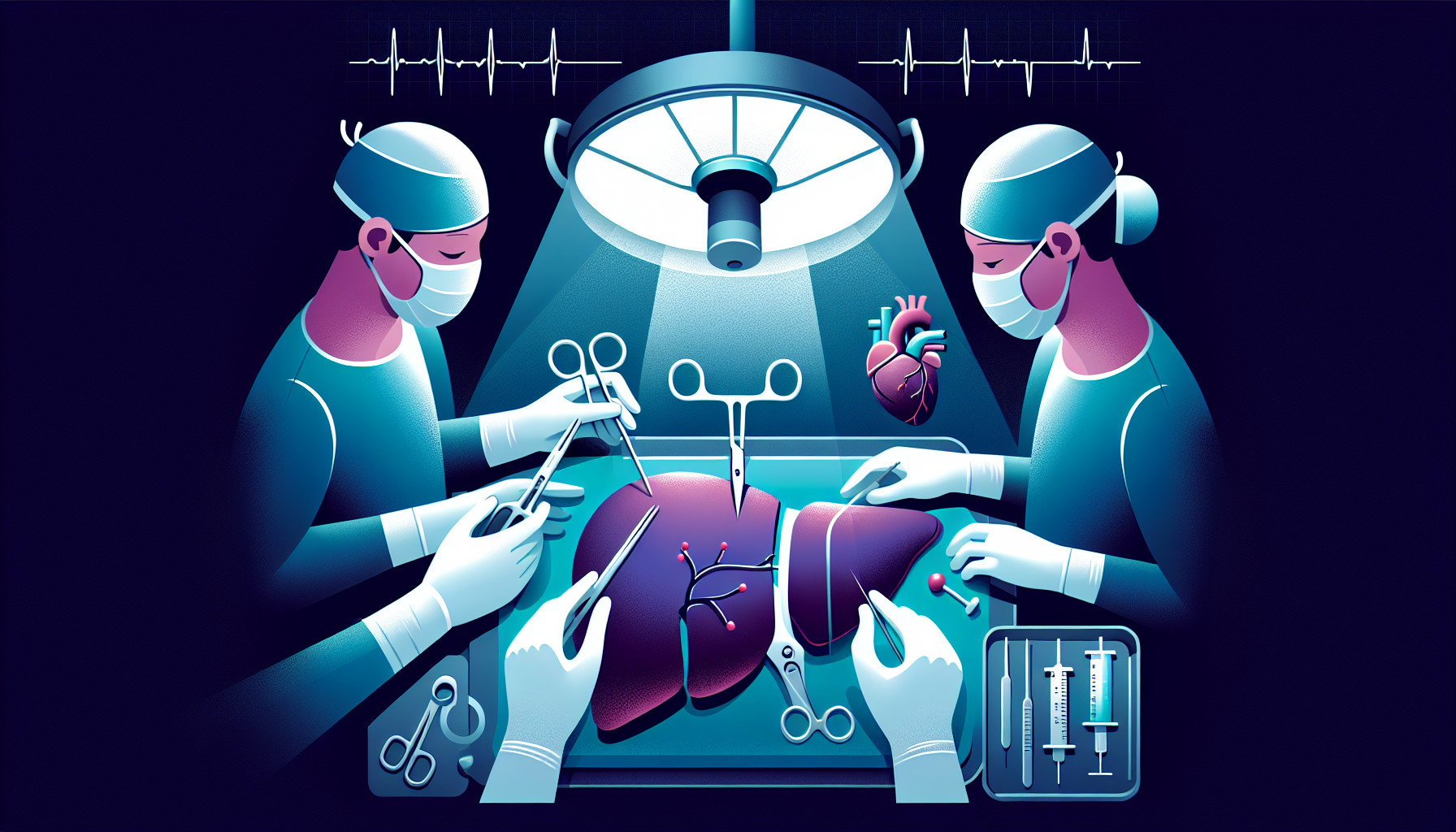Our Summary
The number of liver transplants is increasing worldwide, and patients who receive these transplants are living longer. This means more people require ongoing care after their transplant. To provide the best care, doctors need to pay attention to both the transplanted liver and any other health issues that are more likely after organ transplantation.
Common problems with the transplanted liver include rejection by the recipient’s body, issues with the bile ducts, and the original liver disease coming back. To stop the body from rejecting the new liver, patients have to take drugs to suppress their immune system. But these drugs can also cause other health problems, including metabolic syndrome (a group of conditions that increase the risk of heart disease, stroke, and type 2 diabetes), different types of cancer, and infections.
Therefore, it’s crucial to find the best balance of these drugs to prevent issues with the transplanted liver while also lowering the risk of other health problems. It’s also important to regularly check patients for these health problems and to be alert for any signs of them. In this review, we discuss these common problems after liver transplantation and some special considerations for taking care of patients after they receive a liver transplant.
FAQs
- What are the common causes of allograft dysfunction after a liver transplant?
- What are the potential systemic complications of immunosuppression in liver transplant recipients?
- How can post-liver transplant care be optimized to prevent allograft dysfunction and reduce systemic complications?
Doctor’s Tip
It is important for liver transplant recipients to follow a strict medication regimen, including immunosuppressants, to prevent rejection of the new liver. Additionally, regular check-ups with your transplant team are essential to monitor for any signs of complications such as biliary issues or disease recurrence. Maintaining a healthy lifestyle, including a balanced diet and regular exercise, can also help prevent systemic complications such as metabolic syndrome and malignancies. Be sure to discuss any concerns or changes in your health with your transplant team promptly.
Suitable For
Patients who are typically recommended for liver transplant are those with end-stage liver disease, including cirrhosis, acute liver failure, and certain liver cancers. Other considerations may include individuals with genetic liver diseases, such as hemochromatosis or Wilson’s disease, as well as those with autoimmune liver diseases like autoimmune hepatitis or primary biliary cholangitis. Additionally, patients with certain metabolic liver diseases or liver diseases caused by chronic viral infections, such as hepatitis B or hepatitis C, may also be candidates for liver transplant. Ultimately, the decision to recommend a liver transplant is made on a case-by-case basis by a multidisciplinary team of healthcare professionals.
Timeline
Before liver transplant:
- Patient is diagnosed with end-stage liver disease or liver failure
- Patient undergoes evaluation for transplant candidacy, including medical, psychological, and social assessments
- Patient is placed on the transplant waiting list
- Patient waits for a suitable donor liver to become available
After liver transplant:
- Patient undergoes surgery to receive a new liver
- Patient is closely monitored in the hospital for signs of rejection or complications
- Patient begins taking immunosuppressive medications to prevent rejection
- Patient is discharged from the hospital and continues to be closely monitored in outpatient follow-up appointments
- Patient undergoes regular blood tests and imaging studies to monitor the health of the new liver
- Patient may experience complications such as rejection, biliary complications, or recurrence of primary disease
- Patient may also develop systemic issues such as metabolic syndrome, malignancies, or infections
- Patient requires lifelong care and monitoring to ensure the health and function of the transplanted liver
What to Ask Your Doctor
What medications will I need to take post-transplant and how often will I need to take them?
What are the potential side effects of the immunosuppressant medications and how can they be managed?
How often will I need to follow up with my transplant team for monitoring and check-ups?
What signs or symptoms should I watch for that may indicate rejection or other complications?
How can I reduce my risk of infections post-transplant?
What lifestyle changes should I make to support my overall health and the health of my new liver?
What is the long-term outlook for my liver transplant and what should I expect in terms of recovery and quality of life?
What are the potential risks or complications associated with liver transplant, and how are they managed?
Are there any specific dietary guidelines I should follow post-transplant?
Are there any support groups or resources available for liver transplant recipients to connect with others going through similar experiences?
Reference
Authors: Odenwald MA, Roth HF, Reticker A, Segovia M, Pillai A. Journal: Clin Transplant. 2023 Oct;37(10):e15085. doi: 10.1111/ctr.15085. Epub 2023 Aug 7. PMID: 37545440
